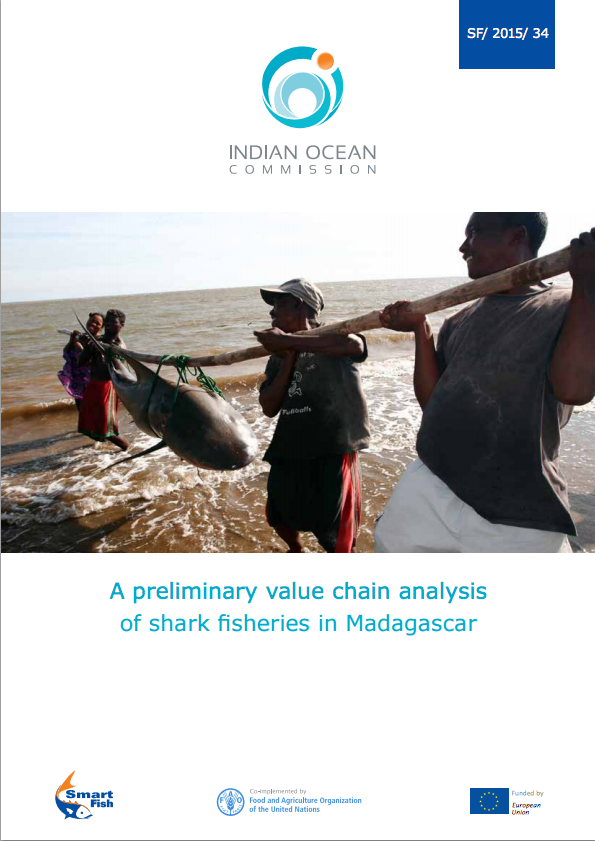Executive Summary
Madagascar’s extensive (~6,500 km) coastline comprises the most diverse and extensive shallow marine habitats in the Western Indian Ocean, supporting an estimated 123 shark and ray species. Sharks have featured in Madagascar’s fisheries for at least 100 years, with exports recorded as early as the 1920’s. Globally, shark fins are one of the most highly valued seafood items and represent a critical and significant source of cash for some of Madagascar’s isolated fishing communities.
There is strong evidence that shark overexploitation occurs in Malagasy waters and that shark populations in the area are declining rapidly. Although reliable figures on Madagascar’s domestic shark fishery are sparse, anecdotal observations report declines in shark numbers within the last two decades. According to national studies based only on official export data, recorded shark fin exports stood at approximately 32 tonnes in 2010, a decrease from 65 tonnes in 1994. Lack of data on catches, particularly from artisanal fisheries, bycatch by licensed industrial vessels, and by illegal, unregulated and unreported (IUU) fishing by foreign industrial vessels, means these official export figures are likely to be gross underestimates of the actual production.
There is an urgent need to actively and aggressively manage Madagascar’s shark fishery. The rapid decline of sharks is likely to have several negative socioeconomic and ecological impacts, including the loss of livelihoods and protein for those people who rely on them and potentially altering the trophic structure of marine and coastal ecosystems. However, putting in place conservation measures and enforcing regulations remains a formidable challenge. Much of Madagascar’s fishery takes place in remote fishing grounds scattered over thousands of kilometres of coastline; the fishers are highly mobile and move great distances to seek productive fishing grounds; the government lacks the means to monitor these fisheries and enforce regulations; and the markets are informal and closed.
Significant steps must be taken in order to effectively prevent the collapse of Madagascar’s shark fishery. A widespread campaign to regulate both international and local shark fishing must occur simultaneously for any significant positive change to occur. For this to take place scientifically robust data must be collected over the long term. For any national conservation strategies to be implemented effectively, they should be based on data collected through participative monitoring and implemented at the national level. Such strategies should apply to artisanal and traditional fisheries, as well as to international commercial fishing vessels operating within the EEZ. Madagascar’s existing locally-managed marine areas are a vehicle through which coastal shark management strategies could be implemented. However an increase in both technical and logistical capacity will be required for effective management at the local, regional and national level, together with strong enforcement support to LMMAs.
Although it is recommended that the government develops appropriate national legislation and put in place proper monitoring and export restrictions, the onus remains heavily on the international community, with global legislation driving the regulation or lack of regulation of the global shark trade. Particular attention needs to be paid to those countries with distant water fleets / vessels operating within Madagascar’s EEZ, both legally and illegally. Without proper regulation of their shark fishing effort, partly through RFMO’s, little progress can be made.

















